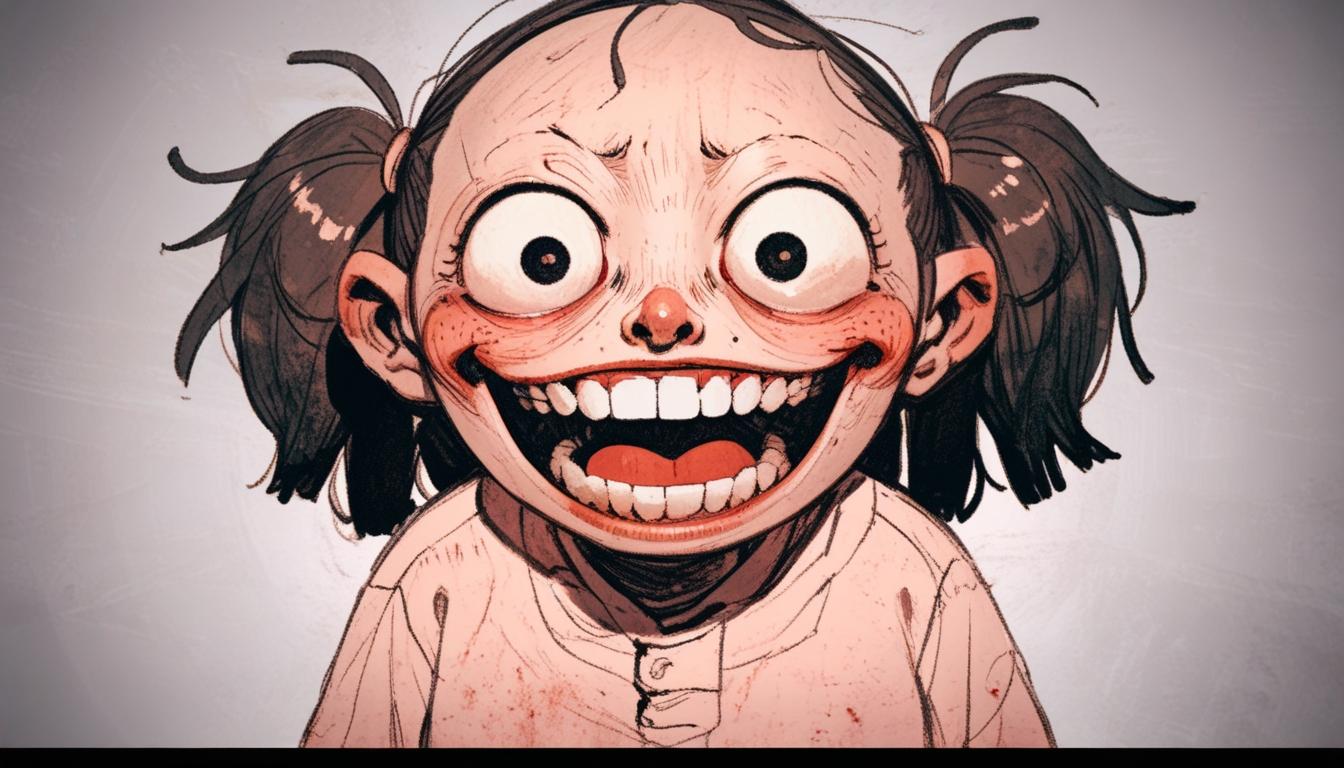Between 2018 and 2019, a widespread moral panic swept through the UK and various countries around the world concerning the so-called 'Momo Challenge.' The phenomenon began with reports circulating on social media platforms like WhatsApp, claiming that children were being contacted by an unidentified individual or entity under the name "Momo," represented by a disturbing profile image of a half-human, half-bird figure with bulging eyes and a sharp mouth. This character was originally a sculpture created by a Japanese special effects company, unrelated to the purported challenge.
Parents and schools raised alarms after reports suggested that children were receiving messages instructing them to injure themselves or others, turn on appliances such as stoves while family members slept, or even harm themselves lethally. Anecdotes claimed that the 'game' threatened children who refused to comply with its demands. The challenge was rumoured to have originated in Japan before allegedly spreading to Europe and Latin America.
Significant media coverage and public concern rapidly followed, drawing attention from high-profile personalities like Kim Kardashian, who publicly called for YouTube to take action and urged parents to monitor their children's online activity. The panic reached the political arena in the UK, where the House of Commons discussed the issue. Authorities, including UK police and various schools, issued warnings to families about the supposed threat.
Despite the global fear, concrete evidence of the challenge's existence and impact remained elusive. Some reports linked the challenge to tragic incidents, such as the suicide of a 12-year-old girl in Buenos Aires, Argentina, in 2018 and the deaths of two teenagers in Colombia. In these cases, investigators explored whether the 'Momo Challenge' played a role, but details remained unsubstantiated, and official conclusions were not publicly confirmed.
The phenomenon was widely believed to be an urban legend or hoax embellished by social media amplification and mass hysteria. Authorities across different countries expressed uncertainty about the challenge’s authenticity. Spanish law enforcement issued cautions that the 'Momo Challenge' appeared to be a hoax or an internet prank, warning the public not to add unknown Japanese phone numbers associated with the character. Monitoring bodies highlighted the risk that the widespread fear around Momo could inadvertently encourage curiosity about self-harm among children rather than protect them.
By early 2019, the UK's political leaders acknowledged the concern but also relayed that charities found no verified evidence of children being influenced to self-harm because of the Momo Challenge. Andrea Leadsom, then Leader of the House of Commons, noted some confusion over the severity of the threat while affirming governmental resolve to improve internet safety laws.
Investigative journalism and expert commentary from outlets such as The Guardian, The New York Times, the BBC, and GQ questioned the validity of the claims. Their analyses consistently found no credible cases of children engaging with the deadly challenge as reported, with many examples cited as misinterpretations, doctored images, or anecdotal stories lacking verification.
Despite the decline of widespread media coverage and official warnings by mid-2019, the Momo figure has persisted as an internet cultural reference point. Content creators, notably some Russian YouTubers, have incorporated the character into horror-themed videos meant for entertainment rather than harm. These loosely inspired stories resemble internet horror folklore known as 'creepypasta,' akin to legends like the 'Russian Sleep Experiment' or 'Jeff the Killer.' However, a minority of videos continue to exploit the urban legend, seeking to provoke fear and generate online attention.
The initial frenzy around the Momo Challenge reflects a complex interaction between social media dynamics, parental concerns, and the viral potential of horror imagery online. While the challenge itself has been largely debunked as a hoax, its enduring presence in digital culture underscores ongoing challenges in navigating children's online safety.
For individuals seeking assistance or support, organisations such as the Samaritans provide confidential help and can be contacted on 116123 or through their website at samaritans.org.
Source: Noah Wire Services
